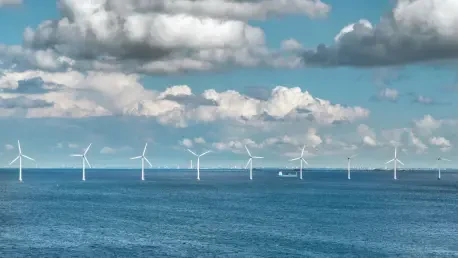In a striking blow to the U.S. offshore wind industry, a major contract worth $475 million between Denmark’s shipping giant Maersk and Singapore-based shipbuilder Seatrium has been abruptly terminated, raising serious questions about the stability of renewable energy projects in American waters. This agreement focused on the construction of a specialized vessel for installing offshore wind turbines, a crucial element of Equinor’s ambitious Empire Wind project off New York’s coast. With the vessel nearly complete, the cancellation has sent ripples through the sector, spotlighting not just operational hiccups but also broader systemic challenges. From construction delays to political headwinds, the incident underscores the fragile state of offshore wind development in the U.S. As stakeholders grapple with the fallout, this development serves as a stark reminder of the intricate balance between technical execution and external pressures shaping the future of clean energy initiatives in the region.
Unpacking the Contract Dispute and Delays
The termination of this high-stakes contract by Maersk stems primarily from significant delays and construction issues encountered during the vessel’s development at Seatrium’s facilities. Maersk issued a statement confirming their decision to end the agreement, citing failure to meet agreed timelines as a key factor, though specifics regarding payment for the nearly finished work remain undisclosed. This move has left Seatrium reeling, with its shares plummeting by 6.5% on the Singapore stock exchange following the announcement. In response, Seatrium is exploring legal avenues to contest the cancellation, while also considering alternative applications for the vessel, potentially still tied to the Empire Wind initiative. Meanwhile, Equinor, the project owner, is carefully assessing the impact on their timeline and exploring options to mitigate disruptions. This clash highlights a critical tension in the industry, where contractual obligations and operational realities often collide, threatening the momentum of large-scale renewable energy projects amidst tight schedules and high expectations.
Broader Challenges Facing U.S. Offshore Wind
Beyond the specifics of this contract dispute, the cancellation reflects deeper uncertainties plaguing the U.S. offshore wind sector, compounded by both logistical setbacks and political opposition. The industry has struggled to gain steady footing, with projects like Empire Wind facing intense scrutiny and resistance, including a recent month-long stop-work order attributed to policies under the current administration, which has historically opposed offshore wind development. Such political barriers add layers of complexity to an already challenging landscape, where supply chain issues and construction timelines frequently derail progress. The fragility of this sector is evident as stakeholders navigate a maze of operational and regulatory obstacles, casting doubt on the pace of transition to cleaner energy sources. Looking back, Maersk’s decision to walk away from this deal underscores a pivotal moment of reckoning, urging industry players to rethink strategies, strengthen partnerships, and advocate for supportive policies to ensure the viability of future offshore wind endeavors.









